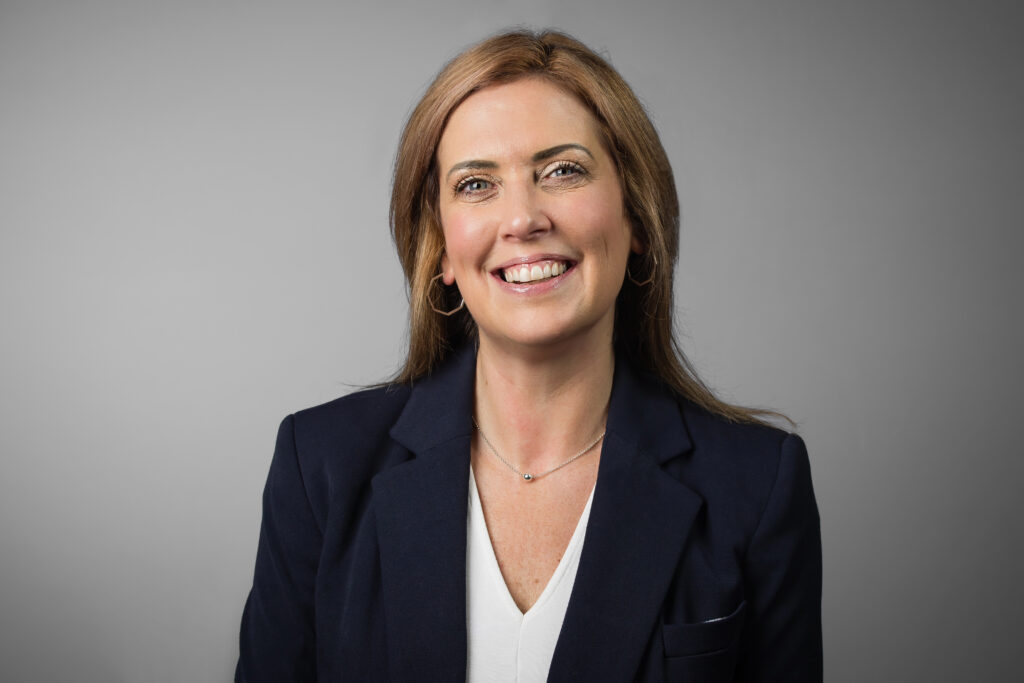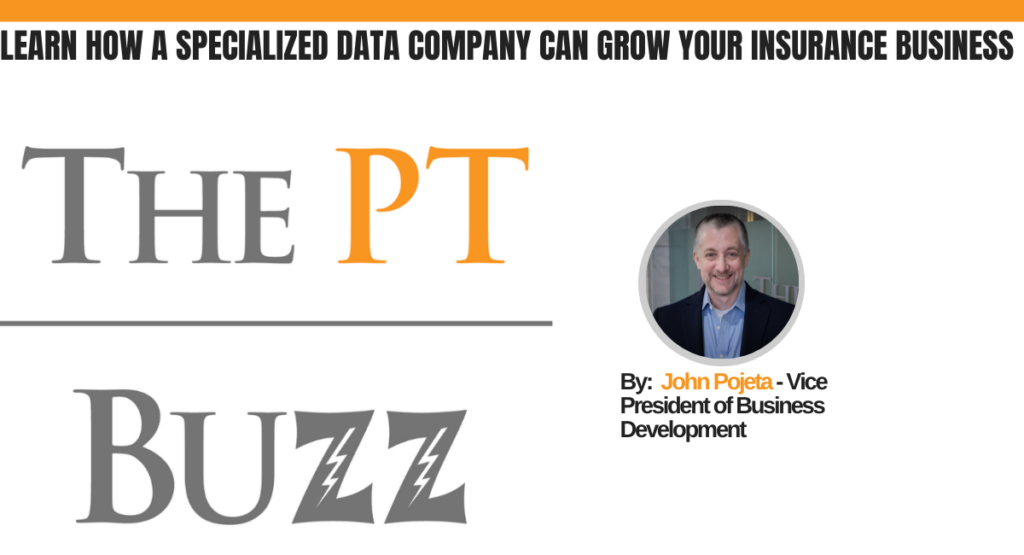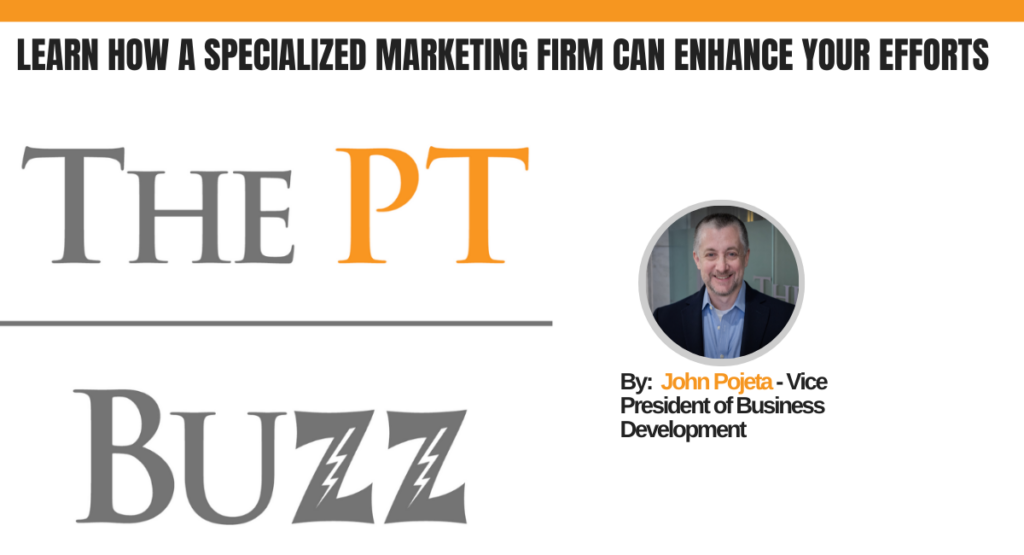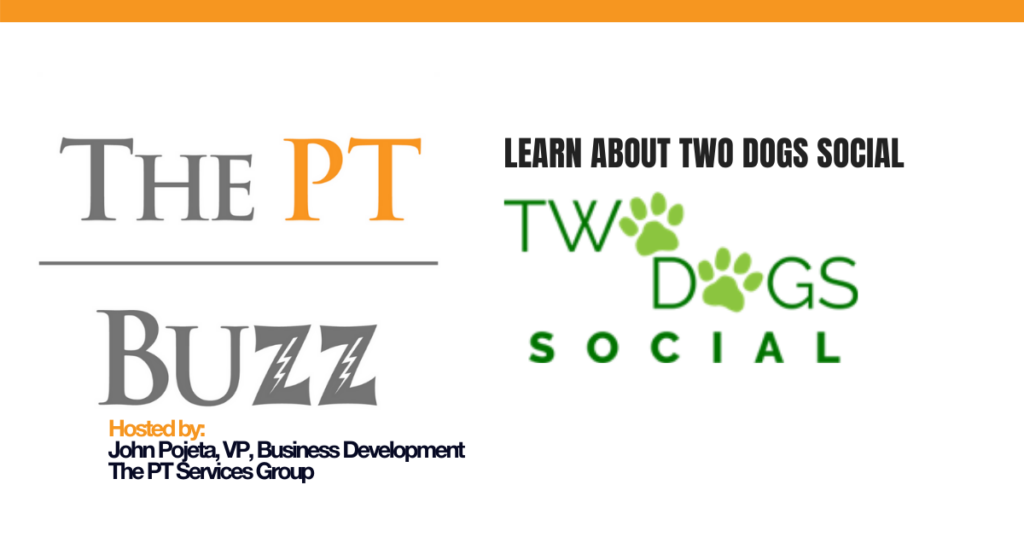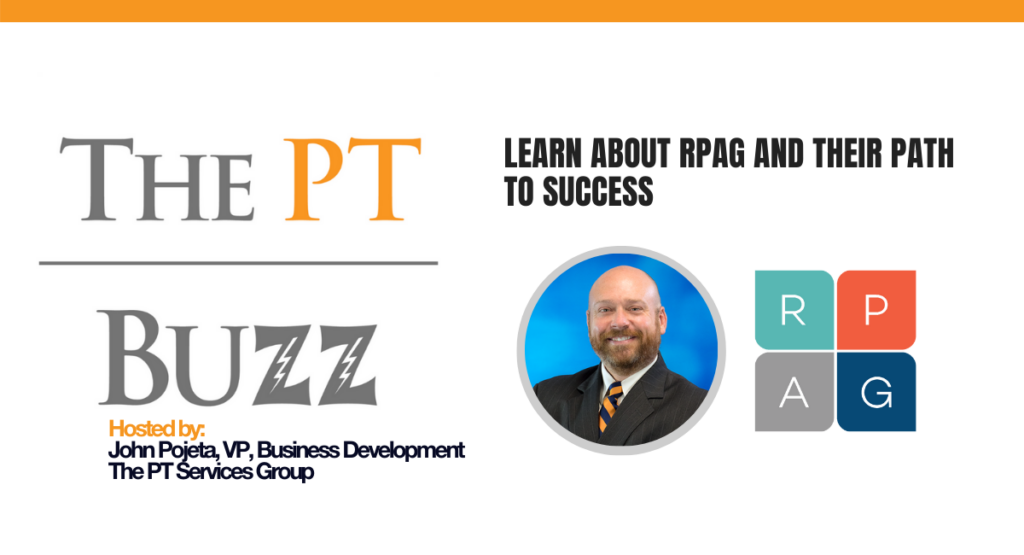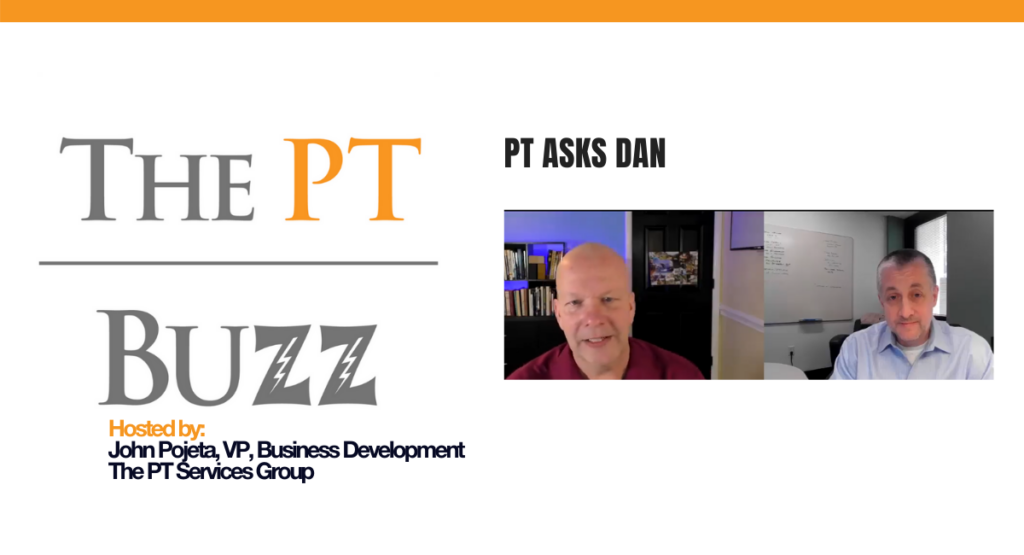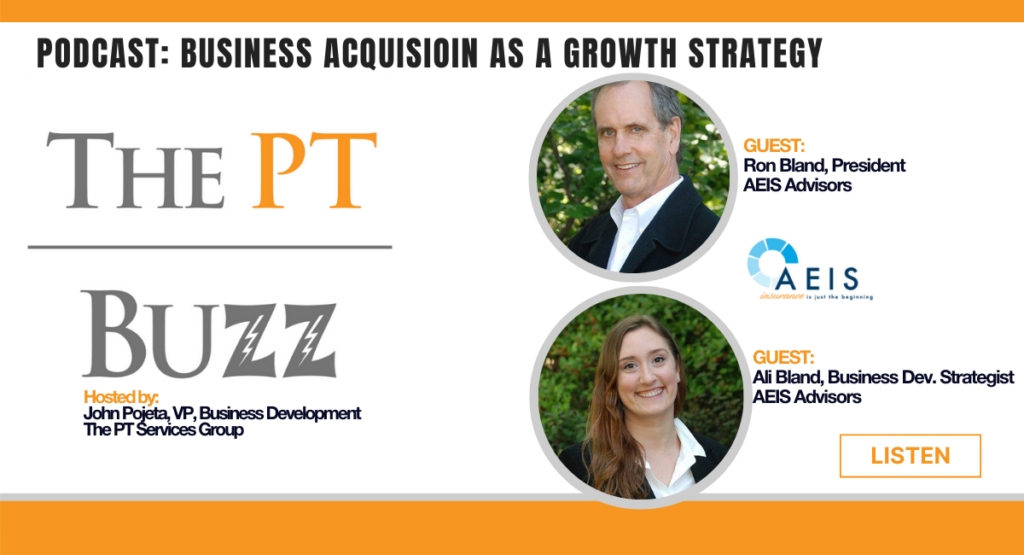PT’s John Pojeta welcomes Founder and CEO of The Flourish Group & Flourish Wellness Coaching, Niki Campbell for a wide-ranging conversation about starting her business. They also tackle important topics around employee health and wellness. Tune in!
Where to Listen/Subscribe














Podcast Resources:
Any and all resources we mentioned in the podcast can be found here. Looking for something not here? Contact us, we’d love to help you out.
Guest Bio:
Niki Campbell
As the force behind The Flourish Group, Niki Campbell is more than a health and wellness coach and business owner —she’s an enthusiastic advocate for vibrant living, and a thought leader in the health and wellness field. Once a seasoned communications executive, Niki rewrote her career path when two autoimmune diagnoses ignited a fierce pursuit of work, life, and wellness harmony.
Niki is on a mission to redefine how we perceive health by empowering people to lead lives that radiate joy, health, and without giving up the things they love or adding more stress and demands to their schedules. She believes that wellness shouldn’t be frustrating or overwhelming.
Niki doesn’t just preach well-being; she lives and breathes it. Her coaching and wellness philosophy is built on the Foundations of Flourishing, which prioritize simple, safe, and sustainable health and wellness practices that foster lasting transformations.
Established in 2019, The Flourish Group has emerged as a leading provider of innovative wellness strategies and curated programs for both individuals and the workplace. Niki and her team work with organizations of every size and sector, spanning the globe, and empower individuals of all ages to embrace a healthy lifestyle.
Contact information: niki@theflourishgroup.com | Website: theflourishgroup.net
Podcast Transcript:
John Pojeta: Thank you so much for joining us again on the PT buzz. And today I have with me Niki Campbell. Niki, how are you? I’m doing well. How are you? I’m doing great. Thanks so much. So we met as you came to speak to PT and talk about resiliency. So can you just share some basics about yourself, the firm, and who you help?
Niki Campbell: Yeah, yeah, so I’ll try to be really brief about it because this is a completely different career, um, midlife career change. It wasn’t a midlife crisis, it was a midlife career change. Um, maybe they’re the same thing, but Um, I, you know, I had a great career in communications and I really loved my job and, um, it didn’t love me, um, physically.
So I had a lot of health issues about 10 years ago they started and really it brought to my awareness and put it in the spotlight how lifestyle is so interconnected to your physical health and just the things that you [00:01:00] do. outside of eating well and exercising, you know, the stress and sleep and all of those things, how they can really make or break your health.
So, um, did a complete change, went back to school at age 44, um, became a, I’m a registered dietetic tech. Um, I have a master’s in health and humor performance. I don’t do things kind of halfway. I’m like, if I’m going to do this. I’m going to do it right. And so I founded the firm on the premise in 2019 of executive health coaching.
So I wanted to work with people who are like me, people, professionals who were stressed out, business owners. And then of course the pandemic happened and literally everyone was stressed out. So um, I, you know, good or bad, you know, an opportunity, um, came during COVID. Uh, the pandemic where corporations reached out and said, can you do, you know, a workshop?
Can you do something on zoom or teams? You know, our staff is really stressed. Everybody’s at home. We’ve never [00:02:00] done this before. Nobody’s eating well. People are drinking more. Like it was just, it was this crisis, lifestyle crisis, I would say is that, you know, employers thought we’ll just give you a laptop and send you home.
That’ll solve it right for many professions and it didn’t because people had no boundaries. They would roll out of bed, go to the kitchen table, start working, work until dinner, dinner was done, go back to work. I mean, it was, it was terrible. It was an awful way to live. So our workplace, um, kind of division or, you know, focus started during COVID.
Um, it was something I wanted to do. I wanted to take wellness programming into corporations. I thought I’d get the individual coaching part of the business up and running first and then do that. And then, you know, the universe is like, Nope, you’re going to do it this way. Um, so now we do both in, you know, individual coaching as well as the work, workplace [00:03:00] programs.
John Pojeta: Gotcha.
Let me back up for a moment. You said college or going back at 44. What was that like?
Niki Campbell: Oh, it was, um, humbling. That’ll be the, that’ll be the word I’ll choose. Um, it was, um, wow, you are all really young. Right. Like when you would sit down. Most of my classes, um, were online, so there was that. Um, I did have a few in person classes.
I did this through CCAC, so I had a few in person classes, and that was eye opening. These were, these were people who were younger than my kids. I was like, I’m definitely old enough to be your parent. Um, but I loved it because while it might’ve been a little bit humbling, it was also very, um, encouraging.
I felt like I learned so much from younger people and how they approach learning and you know, all that kind of stuff. And then I felt like, like I had several who would ask, like reach out and be like, do [00:04:00] you mind if I just like talk to you? I’m not sure about. So it was really good. It was this kind of nice mentor.
reciprocal mentor kind of thing where I learned from them and they for me. So, um, it was great. And then my master’s program was a lot of, you know, it was a mixed bag. Like there was everybody, you know? Um, I just think what we, how we learned in the nineties when I went to college, it’s just totally different.
Sure. And you know, it’s sometimes good, sometimes not great.
John Pojeta: No, it makes sense. Talk about flourish. Talk about. What’s sort of the basic, how did it come to be as far as the name and then how you’re trying to build it, I guess, as you go forward.
Niki Campbell: So it’s funny because I had a lot of pushback from, uh, branding people from, I’m in communications, you know, I was in that world and even people close to me were like, I don’t know, I don’t know if this is the right thing.
And in particular, adding the word group to it. But I knew I [00:05:00] wanted multiple areas of focus and that I wanted the ability that if someday Flourish, you know, wellness coaching would spin off or, you know, it’d be its own thing or, you know, Flourish workplace solutions, which is what we’re calling the two different divisions, if you will.
But the word Flourish, where that came from is at the time there was a ton of overuse of the word thrive. Thriving, you know, You know, Arianna Huffington has like the corner on that, right? So I knew I didn’t want that. I understood that that was very close to what I was trying to communicate. But the more, you know, searching I did.
So the word flourish means to have all the right elements in place for something to truly grow and, and thrive. Right. So. I thought about it and I thought, you know, humans are like plants, right? If you give yourself or, you know, you, you do the bare minimum, you drink some water, you eat maybe once or twice a day, you get a few [00:06:00] hours of sleep, like you can get by.
Plants are the same way. As long as you water it and you, you know, it’s, it’s gonna pretty much, I mean, I’m not a great example of that because I don’t have a green thumb, but. But in theory, very similar kind of things. What if though, as a human, you were getting the maximum amount of sleep and it was good sleep and you were well hydrated and you were, you know, managing stress, not eliminating stress because you can’t do that, but managing stress and you’re happy and you’re able to find time to do the things that you want to do to be well.
Well, I think you could flourish. And so the same could be said for a plant, right? You put it in the right sunlight, you give it the right food. You obviously water it. But like, even someone said to me, you know, there’s evidence that you, if you talk to plants, right, that they thrive. So there’s so many similarities here.
So I just, I said that that’s what it is. I want to help people get all the right elements in place, whether it’s [00:07:00] individuals or organizations. to be flourishing and, and really just being their best self.
John Pojeta: You know, I’m sure it’s one thing to get somebody or an organization in that spot, but it quickly evolves.
It’s hard to stay there because of the pressures that they face. Can you talk a little bit about how you try and keep people in that space once they get there?
Niki Campbell: So it’s a lot of accountability, right? So it’s not just, you know, I think in the world of marketing communications where they talk about launch and leave, right?
Like you do something, you’re like, here, we launched it. Here’s our new product. Well, if you don’t do anything to support that product, if you don’t do the marketing and the Follow up and the, you know, testing with the customers and all that kind of stuff. It’s, you know, it’s not going to thrive. Same with an individual or an organization.
You know, on the individual side, we work with people mostly at a minimum for three months. So, you know, there’s a lot of, like, short term, you know, diet plans or exercise plans. And, you know, [00:08:00] there’s some, there’s some good to that. You know, it kind of gets you in the mindset. But we believe, like, nothing, no change.
Really happens before 90 days. Like it really is difficult to make change, sustain that change and make it into a routine. So we, we try to work with people in that timeframe. The same thing with corporations. I always say it’s great to bring somebody in for a workshop. What else are you doing? You can’t bring someone in and say, have them say all the things.
And then you don’t do those things after they leave. So what is, what’s the rest of the equation? And it doesn’t have to be me. I’m not saying I have to come back and do, you know, 15 more workshops, but are you living, you know, the values that you say are important to you? Flexibility, work life balance, you know, valuing people’s mental health.
John Pojeta: So that’s, I mean, I think it’s just conversations and helping them get better in tune with their employees. asking them, you know, it’s got to be tough with that hit and run mentality. These days, if I want a quick fix, I want to go and we keep seeing people after quick fix, after quick fix. If they struggle with a diet, they take Ozempic and you’re after something that makes it easy.
And the reality is working on yourself is not easy.
Niki Campbell: Don’t get me started.
John Pojeta: Giant rabbit hole.
Niki Campbell: I will. Yeah, no, I just had, I mean, I had a consultation with a client this morning and she is. on Mongero. And, um, I said to her, this is great. You know, somebody who needs to lose a lot of weight. These drugs are very helpful to jumpstart that process and help you.
It’s tough when you have a lot of weight to lose. I said, but what I want her to have is all of that lifestyle. around it. So that when she does go off of it, because you don’t want to be on those drugs for the rest of your life when you come off of it, how are you maintaining that? How are you? You know, that’s the that’s the key there. So yeah, I have a lot of opinions, but we’ll leave it at that.
John Pojeta: I’m sure I get it. Talk about when the business started. What were some of the biggest roadblocks or hurdles you faced in getting it up and
Niki Campbell: I would say on the individual side, people who wanted that quick fix. Everybody’s like, Oh, I saw XYZ Influencer on, you know, Instagram and they do this and, you know, here’s a supplement or something that, you know, is going to fix all their problems.
It’s, you know, it’s a process. And I think that is convincing someone that one, it doesn’t happen overnight. And two, they are worth the investment. And that three, sometimes the result is not. Weight loss or, um, you know, six pack abs, you know, sometimes the result is you don’t feel like you want to die when you walk up a flight of steps or you have the energy to play with your kids [00:11:00] or, you know, you, you feel more confident, you know, so I try to get people to think of, think of the results and that frame of mind on the corporate side.
And, and I guess this is a benefit of the pandemic or a bright spot that came out of the pandemic is prior to that, employers wanted to see what was the ROI, how much am I going to save on my health claims? How much is this going to save me and, you know, pharmacy benefits, things like that. It’s really hard to measure that, you know, it’s really hard to say a workshop on, you know, eating well for diabetics is going to reduce the amount of, you know, insulin that you’re paying for.
It’s really hard. Out of the pandemic, people are looking less at those metrics and more of Are my people staying? Right. Are my people staying? Are they burned out? How’s the quality of work? So that barrier in the beginning is less of, and I don’t even talk about it. Like I used to have slides that would talk about [00:12:00] what the ROI was and, you know, there was, you know, Harvard research and Forbes, you know, magazine had done articles like showing like, for every dollar you spend, you get a 1.
50 back. Or, you know, I don’t even talk about that anymore because I say do you want to replace? You know, someone every year because they’re burned out in the position, that’s, that’s a lot more than the 1500 or, you know, 2, 500 to do a program.
John Pojeta: Yeah. When they get that maturation of, I care about my people and their wellbeing.
And when I focus on that, the results come, it makes a lot of sense. Talk about when you started, how you started gaining new clients. How did you generate conversations? How’d you tell your story? And how did you start to engage?
Niki Campbell: Well, I have to be honest, coming at this with 20 plus years of building a network.
Most of my initial clients were referrals or people I knew, um, which was amazing. Um, and I worked when I worked [00:13:00] in communications, I worked with a lot of HR professionals. So in the beginning of the pandemic, when people were reaching out to me, it was a lot of former HR colleagues. So I w I feel very fortunate to have this amazing network that, you know, and Not to say that they just gave me that work.
I mean, they know me, they trust me, they know that what I’m doing is, you know, something I’m really passionate about. Um, now I always say my best marketing is going and speaking, speaking at conferences, speaking at, um, you know, women’s events. Um, you know, I speak every, pretty much every year at the Pittsburgh HR association.
So being able to tell my story that way, because it typically resonates with other professionals. Um, and I will be completely honest, I didn’t tell my story for the first couple of years. I was like, it’s not about me. It’s not about me. And I had somebody finally say to me, but people need to hear. That you have been through some stuff and that your [00:14:00] health was failing because there are people out there who are like that.
So that’s been the last couple of years and it’s been really difficult because I don’t, I don’t want to seem like I am, you know, using my, you know, health issues to like, you know, make you feel sorry for me and, you know, book a, you know, book a workshop or something. So. Um, I, I’m getting more and more comfortable with that.
John Pojeta: Yeah. And I imagine you get better at telling a story in the way that you feel good about and all those kinds of things. I think the other thing that speaks to though is the brand you built in other careers and the relationships you built with people and they have some trust with you as you comment, at least engage in the conversation and see where it’s going to go.
And I think it goes back to, in our early twenties and late twenties, we tend to. Burn some bridges as we go because we know a lot or everything and all those kinds of things and the ease with which you can build relationships over time, the value can pay off in ways you don’t necessarily expect.
Niki Campbell: And I think people don’t realize the value of their network.
Like when I talk about, you know, when people say to me, Oh, I, you know, I advertised here, I bought, you know, something to, you know, direct mail or, or whatever. And I’m not saying those things don’t work. But for me, it’s always been about relationships, my network, you know, what I do doesn’t, it’s not a product, so it’s not like, do you want to buy a hundred of these?
Seeding, you know, I mean, you know this, right? When you get somebody to commit to a long term relationship or even, you know, a short term one, that’s a couple thousand dollars, you have to like, it might be six months to a year before that relationship and that networking really comes to, to be a benefit.
John Pojeta: Yeah, it goes back to what you started to describe there touching on the plant analogy of seeding and basics and yeah, and it’s hard because your network isn’t your LinkedIn connections. It’s the people, you know, face to face, you work through things with them and it evolves.
Niki Campbell: And it’s, it’s as important to my job.
I mean, every week I have time blocked on my [00:16:00] calendar to like network. And sometimes it is LinkedIn. Sometimes it is like, what other events should I be going to? Who’s at those events, you know, it’s, it’s a lot of homework. I don’t just show up with like a stack of business cards and like, you know, shoving people’s faces.
Yeah. So there’s like work behind the scenes, which I think was probably one of the most surprising things to me. It was like, okay, this is, this is a lot of work.
John Pojeta: Good stuff. Yeah. Um, talk about why groups typically hire you and why maybe they don’t, or they push back. Where do they push back and say, we’re not sure.
Niki Campbell: Yeah. So most of the time, um, groups hire me because the content resonates. So. I say to a lot of organizations, I’m not going to be your girl to come in and do, you know, a talk, you know, a talk on dieting or, um, you know, what’s the best exercise or, you know, some of those traditional things. I don’t want to play on your step challenge.
I don’t want to, I don’t want to be, you know, doing your biggest [00:17:00] loser competition. Um, nobody, by the way, should be doing that. Um, just FYI, you know, your PSA. Um, but. Where I get the pushback is that companies, there are some companies that are still really ingrained. They equate wellness with weight loss.
Or wellness with the step challenges, or, well, that’s what we want to do. And I’m like, okay, that, that’s fine. It’s, but I’m not your person. Um, so I would say that the, some of the pushback is again, people not valuing what the kind of non monetary, um, benefits are, but also people still being really stuck.
in what wellness really means, you know, that it’s not all of the, um, all of the aspects of their employees. It’s like, you know, we’re going to do a, you know, a walking challenge and we’re going to do, you know, um, cooking demonstrations. And, you know, with [00:18:00] everything that’s going on with trying to be more inclusive and diverse in the workplace, I say to them all the time, like, Does your entire population eat meat?
Do you want to bring somebody in to do, like, you know, a meal prep workshop, you know, with chicken? And, you know, it’s just getting a little bit more in tune with your workforce and what do they really want. And, you know, oftentimes it’s, no, we want somebody to come in and talk about, you know, the best diets.
John Pojeta: Yeah, and it’s tough. We raised four kids and One of the things we learned probably about halfway through is we weren’t doing a very good job at teaching them coping skills. They were getting too derailed by things that we thought of as minor. And we just wanted them to brush them off, but we had not taught them how to brush them off, how to put them behind them.
And so once we did that, the other things followed, right? Because they weren’t as easily distracted and they were coping better with the realities of being a teenager or whatever they were in the moment. And [00:19:00] then the health came along and then the other things came along because the mind was more sound.
Niki Campbell: Right, right. It’s resilience, right? You teach them how to deal with. and the adversity that is inevitably going to come their way. Um, and yes, the physical health is very important. I, I say that all the time. If you are not healthy physically, you’re less resilient. You can’t deal with stress and issues if you haven’t slept and your blood pressure is high and you know, you’ve got all sorts of other conditions.
So I’m not downplaying the physical side, but what you said really resonates in the sense of like preparing people for What happens after the step challenge, like what happens, you know, how do you deal with along the way you, you know, you hurt your knee, right? So maybe somebody who’s not used to exercising, you know, I always caution that as well.
What if halfway through, you know, you have to drop out of the challenge? You know, like demoralizing that is, and you know, people are, they’re discouraged by it. So how do you, [00:20:00] you know, still give them some encouragement and motivation to still be healthy?
John Pojeta: Yeah, what’s the story? Absolutely. Um, Everybody has these.
You might have something that are funny or interesting or just share some wisdom. Talk about an experience or two that you’ve had or a story that you tell that may help people that are listening.
Niki Campbell: Hmm. A single story that would help people. Um, you know, I, I always say to people, recognize the signs. So when I talk about my story and how I came into this, um, in 2014, I was diagnosed with two autoimmune conditions.
However, there was probably five years prior to that, that these symptoms were happening. I was having problems with my eyesight. I was having, you know, my hair was falling out. I was, you know, I had like, I would break out in hives. Like there were all these signs and I would every once in a while talk to my doctor and you know, they’d put me on a steroid or they would say, you know.
There was nobody ever connected the dots and [00:21:00] I, because like many other people was, you know, I was in this career and I was, you know, on that path upward. And I was like, I don’t have time for this. I don’t have time. Just give me some eyedrops. I’ll be fine. Don’t wait until it becomes a crisis. And someone tells you these diseases won’t kill you, but your lifestyle will.
And I was like, Oh. Yeah, all right. It makes sense now. I’m like, so I, I always say, you know, don’t, don’t ignore the signs. Don’t think that this is just a minor. If things keep happening, you know, like write it down, keep track because I waited way too long to get help. And I mean, everything happens the way it happens.
So I’m glad that I’m here and I’m doing this, but had I recognized in 2010 or 2012. That these things were all happening, um, you know, it might’ve been a different outcome.
John Pojeta: That’s a great piece of advice from the standpoint of write it down because too often you are standing [00:22:00] in front of a doctor and you’re trying to recollect what’s played out and you miss half of it.
Niki Campbell: And so they don’t have the whole story and it’s hard to have them know, modern healthcare, they’ve got like eight minutes with you. Yeah. You know, in a lot of cases. Um, so you better get in there, know what you need to talk about. And advocate for yourself. I imagine
John Pojeta: that transfers over to a company, an executive team, or somebody you’re trying to coach, is the things they see in their environment, write them down.
Because by the time they start having conversations with you, half of the information is in front of you, and you’re still trying to figure out how to help them. Good stuff. Um, leave us with a piece of advice, a few words of wisdom, something you’d say, whether you’re a company or an individual, if you’re not doing these things, do them, or think about these things that people don’t typically think about.
Niki Campbell: So, I would say, we are a chronically dehydrated society. Like, we are, like, just, like, if there’s nothing else, just drink a damn glass of water. Like, [00:23:00] just, like, it’s It sounds silly, but you wouldn’t believe the number of people who come in here and they’re like, oh, I don’t drink water I don’t drink anything during the day.
I’m like, how are you? How are you standing up? What how is this happening? So I would just say like it doesn’t have to be giant leaps of a complete overhaul of your lifestyle You know the whole new year new you thing is such bullshit because it’s it’s the little things it’s I’m gonna drink more water today I’m gonna go to sleep 20 minutes earlier, one thing, one thing every quarter, I tell people, just pick one habit you’re going to work on for the next three months and just stick to it, track it, write it down.
You know, we all responded to the sticker charts when we were kids, right? You wanted to see, you were getting all these, you know, you were doing good all in a row, you know? So do that, you know, it, it works.
John Pojeta: When it goes back to sort of where you started on the quick fix versus the incremental [00:24:00] stages of development where you start stacking things on top of other things and over time you get that big picture improvement.
Yeah. But start small.
Niki Campbell: Yeah. Yeah. And I love that you use stacking. That’s, that’s a habit. Stacking is a big. Good stuff.
John Pojeta: Niki, can’t thank you enough for the time.
Niki Campbell: Thank you. Take care.

